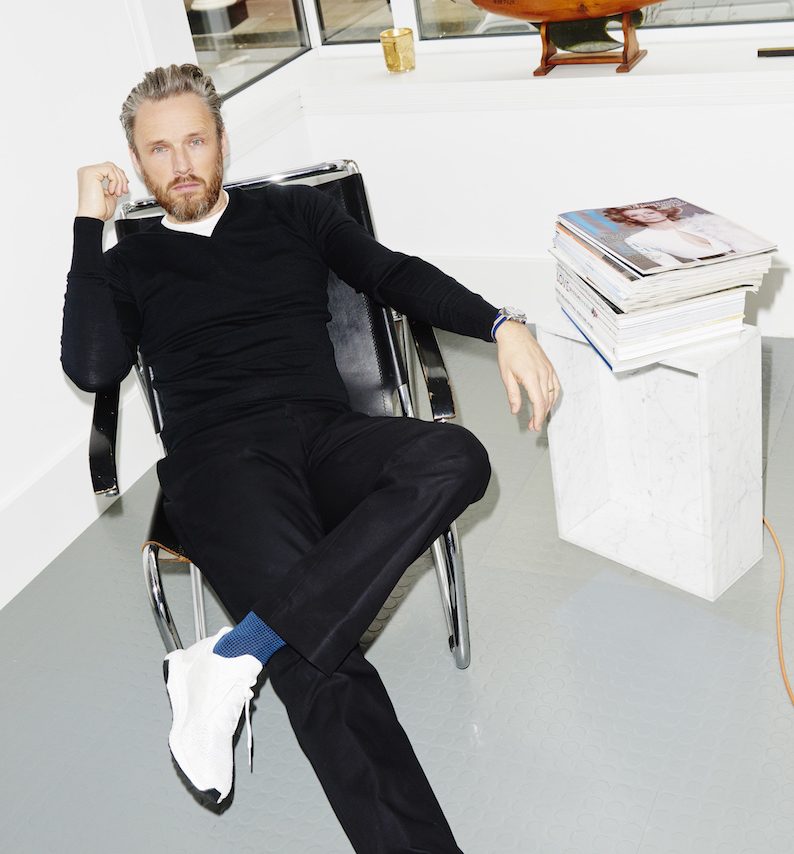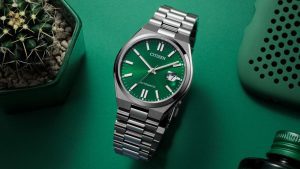Alasdhair Willis: Creative Director, Hunter
You could say that Alasdhair Willis is a creativity doctor. He’s brought on as a consultant to help breathe new life into brands, like Adidas and the BBC, and give them a little boost. Most impressive, perhaps, is his complete rehaul as creative director at iconic British brand, Hunter. Here, Willis shares his thoughts on the creative landscape and approach to doing business.
How do you cultivate a culture that really optimizes and cultivates your team’s talent to its best potential?
Passion and enthusiasm are probably the most noticeable things that people say when they’re working with me, and hopefully clarity. I try not to over-complicate and, where possible, not to over-communicate as well.
How do you know where to start when you’re brought on to a new project?
It comes down to a level of experience, and also the way my mind works. For someone who deems themselves first and foremost a creative, I come through the creative process very much process-led. I can see quite quickly the moving parts, understand where we need to start first and how we need to kick things off, and then just work through it in quite a methodical manner. You have to really have that agility factor. At the same time, as they say, failing is alright. Just do it quickly.
What did you use from your past experiences to inform your current role?
It was my ability to see what a brand needs to do in its entirety at any given time that put me in a good position to really seize the opportunity. What prepared me for this was having come from a magazine in both a commercial and creative standpoint, to starting my own consultancies where I would deliver more of a holistic approach to brands. Up until lately, there weren’t too many creatives that could move that one step beyond the creative realm into how [their ideas] were genuinely going to move a business forward commercially.
How do you go into a heritage company and convince an older regime that is based in the past to look forward?
It’s about fundamentally having a strong belief and understanding of what is right for the longevity and future growth of that brand. And then, presenting that to the board or to the stakeholders and saying, “This is my belief of where we should go, like it or you not.” I mean, it’s as simple as that. Something needs to spark a change. It can either come from a positive input or a negative input, and then change will happen.
What do you think defines an exceptional brand?
Brands that really know how to authentically engage their consumer with relevant content, and those who know when to engage and when to pull back. The more information we have to understand who we are speaking to curtails our ability to be creative. In a mad scramble to try to deliver, we quite often lose track of who they actually are and what they want to achieve. Brands will take themselves into areas that might be really interesting and cool, but aren’t necessarily true to the direction they should be traveling on.
Is there a trust that consumers place in a company in order to steer them in the right direction as well?
What’s going on right now is really positive because there is definitely a younger consumer that is more receptive to value-based brands than I think ever before in history. My wife [Stella McCartney] is a fashion designer and her value system for running her business and her brand has always been there and has always been something she has 100% stood by. But, I’ve seen how that has gone from ridicule about values being pushed through a brand, to now being utterly championed and celebrated, and that’s the way forward. Values are important, but made-up values aren’t.













